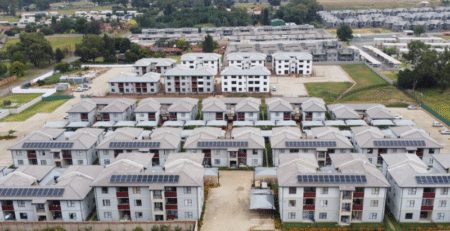Budgeting tips to navigate a financial crisis
Following a series of interest, fuel and food price hikes, homeowners are battling to meet their financial commitments, including levy payments. We suggest bodies corporate take a proactive approach in mitigating the impact of potential non-payment of levies on community scheme finances.
Budget realistically
Scheme executives should prepare realistic and comprehensive annual budgets. Don’t rely on a hundred percent levy collection. It is therefore imperative to budget for legal fees to collect the unpaid levies. Ensure that all expenses are included with possible escalations such as electricity price increases and legal fees to collect outstanding debts. This would allow adequate planning to mitigate the impact of arrear levies and other costs.
Act swiftly
Bodies corporate should implement an efficient Credit Control Policy that specifies processes relating to arrear levy collection and the implications (legal process) of non-payment.
Take immediate action when a unit owner starts falling behind on their levies. The more payments that are missed, the more difficult it would be for levy debtors to pay their debt. Resulting legal procedures could be lengthy and incur costs for both the unit owner and body corporate.
Unit owners should not just stop paying levies, but find out if there are any measures to assist them. For example, a payment arrangement could be put in place that allows the unit owner to repay arrears over several months.
Get a facility in place
Even if a community scheme does not have any levy debtor problems, we still recommend getting a project funding, or combination funding facility in place as a safety net. The scheme will have immediate access to the necessary funds to continue payment of essential expenses in case of emergency. None of our funding solutions has any sign-up or initiation fees and interest is only applied to drawn-down amounts. The body corporate would therefore not incur any costs if the facility is not used.
If your scheme has defaulting unit owners, the body corporate wants to avoid the situation of unpaid invoices or fails to undertake budget items such as preventative maintenance. Our Arrear Levy Funding Solution gives immediate and ongoing access to funding, helping the scheme continue to function as if all owners were paying their levies. Arrear Levy Loans only become repayable[1] when arrear levies are recovered. Interest on these loans is applied to the arrear levy debtor, protecting the paying owners from this unnecessary cost.
Go green and save
Environmentally friendly initiatives can also help the community scheme save on utility bills and boost property values.
In older schemes that do not have separate water meters, the body corporate covers the water costs and recovers these costs through the levies (based on each units PQ share). Water-saving measures that can help lower costs for all unit owners, include the following:
- Encouraging all sectional title owners to replace toilets and showerheads in the scheme and on common property with low-flow equipment.
- Fixing water leaks as soon as possible.
- Choosing water-saving plants for community scheme landscaping.
Similarly, alternative energy solutions like the following can result in significant savings:
- Replace light bulbs in common property areas with energy-efficient ones and ensure the lights are switched off during the day.
- Install solar power. Our Solar Solutions are installed, maintained, insured and monitored with no capital outlay required by the Body Corporate. This is a fully funded solution that recovers this cost through the tariff charged on the electricity used. The scheme only pays for the energy used every month at tariffs that are lower than the current council tariff[2].
- Bolt on Battery Backup and Storage Solutions onto your solar installation. Solar power charges the battery and unit owners can use the stored energy when needed. Charging the battery during low electricity demand times and discharging it during high demand times helps reduce ever-increasing electricity costs.
Lower operating costs
Operating costs or overheads include daily maintenance and administration expenses. Here are some ways to lower these costs:
- Don’t postpone essential maintenance and repair projects, as this may result in even more costs in the future. For example, not waterproofing the roof, can lead to further deterioration and moisture damage which will be even more expensive to fix. Prevention is generally more cost-effective than total repair.
- Obtain quotations from at least three service providers and try to negotiate a lower price to obtain the best outcome.
- Appoint the best contractors to ensure projects are completed properly the first time. Ask for testimonials and recommendations to get the best people for the job. (”Goedkoop is duurkoop”.)
- Pay invoices on time to avoid unnecessary penalties and interest. Service providers may even offer discounts for early payments.
- Consider outsourcing services like gardening, security and caretaking, as this may be more economical than employing full-time staff to fulfil these functions.
Consider ways in which the scheme can boost its income
In addition to reducing expenses, community schemes can consider ways to supplement levy income. Here are some suggestions:
- Utilise unused common property for a hydroponic farm and sell the produce.
- Enhance the return on surplus funds through higher-yielding investments. Our Treasury Solution allows community schemes to invest in specially designed products that attract higher interest than standard funds offered by market participants.
- Earn an income through advertising. Our Outdoor Advertising offering allows the scheme to generate advertising income while enhancing common property areas.
These are just a few practical ways in which your community schemes can balance the budget in 2024. Our specialist Solutions Consultants can assist in other ways to navigate these difficult economic times.
[1] This is subject to the fulfilment of the Loan Terms and Conditions
[2] This tariff is subject to the specific tariff arrangement that Eskom has with that scheme or municipality





